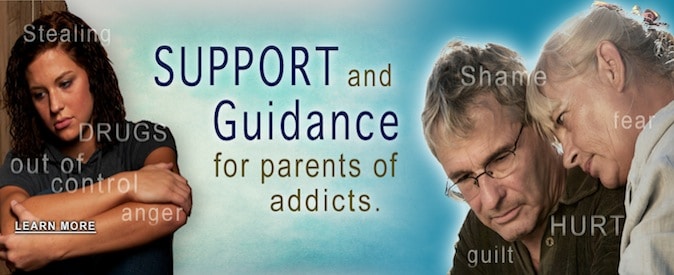
It is Natural to Want to Protect Our Loved Ones
Enabling is acting in such a way as to make it easier for someone to continue their own destructive behavior. The most common enabling behavior is allowing, or even helping, an addict avoid the consequences or discomfort they should be experiencing as a result of their addictive behavior. This is often very difficult to avoid, especially for parents and close loved ones of addicts. We all love our children or loved ones and want to do anything to help them. It pains us when they experience pain or hardship. We see it as our responsibility to protect our children from any struggles, pain, or consequences, and this often carries over to even wanting to protect them from the normal consequences of their addiction-related actions or dysfunctional decisions.
An example would be calling their employer to say they are sick when they miss work or are still not home or too hung over. Another would be to pay their cell phone bill for them when they used their money to party, or not calling the police when they are dangerously driving under the influence.
Negative Consequences Help End Bad Behavior
Sometimes it is important for a person to experience the consequences which result from certain behaviors. If our loved one asks us for money because they spent all they had on drugs, and we give them money, we take away the natural financial consequence of addiction. We think saying yes is always the loving response, but saying no can also be a loving response. Think of a parent who wants to do what is best for their eight-year-old child. If that child wants to stay up past midnight on a school night, the parent would say no to that child because it is not healthy or beneficial. Saying yes in this situation would cause the child to be tired, crabby, and unable to function as well in school the next day. You don’t want to contribute to their downfall, but instead, be part of their healthy growth process.
Setting Rules and Boundaries is Beneficial
When we take a stand and refuse to enable an addict, we are usually changing the unspoken, dysfunctional, and one-sided rules for the game we’ve been playing with them. They will get angry. They may get furious. They want to push you back to the rules that went in their favor. We need to be able to tolerate our loved one being angry at us and stand our ground to not give in to what they want us to do to take them off the hook. Lying for them, paying a bill they owe, lending them a car when they lose their license, and making excuses for their behavior or wrong decisions are all things we should avoid because they are not helpful in pushing our loved one to healthy behaviors in the long run.
We need to remember that one of the biggest wake up calls an addict has is consequences, hitting rock bottom, then realizing their addiction is not getting them closer to their goals and is actually costing them a lot in every area of their life – spiritually, psychologically, physically, legally, financially, materially, relationally … everything. Sometimes when an addict realizes that they are responsible for their own actions and no one is going to make having an addiction easy for them anymore, they make the decision to get help to stop the addiction.
Love Means Not Enabling
Love is the most important gift you can give your loved one. Staying connected, reaching out, and showing they have value gives them hope and courage to change. Love is powerful and can breathe life into deadly situations. Love is showing what is healthy and what isn’t. Love is being motivated by your loved one’s healing, and communicating your concerns with that kind of heart. Tough Love is acting in a way that helps them see what they are doing is wrong and gives them opportunity to take responsibility and bear the consequences so they can remember what not to do in the future.
Having a relationship with someone who is addicted to drugs or alcohol is difficult. Your loved one’s addiction and all its stress can easily infect your mind, distorting your lenses and role, and push you to enabling or dysfunctional actions with your loved one.
Lighthouse Network is here to help provide families with support and resources to deal with an addicted family member and get their loved one the treatment they need. It’s easier to find, and more affordable than you think. Contact us at 844-LifeChange (543-3242) to learn how you can get your loved one into a rehab program that will put an end to their addiction.
